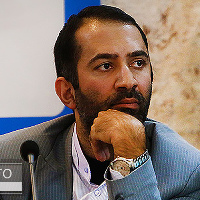Inclining doubt in the rule of avoidance of punishment (darā’)
Author(s):
Article Type:
Research/Original Article (دارای رتبه معتبر)
Abstract:
The majority of jurists regard "the rule of avoidance of punishment (darā’)" as being applicable to the dubieties concerning the object, while the rule is absolute and can include the dubieties concerning the precept as well. The dubiety in criminal law is sometimes in the legal element, and sometimes in the spiritual element, and sometimes in the material element, the inclusion of the rule in these cases is also accepted. Another dubiety is raised in jurisprudence, and it is a dubiety in repentance that, if there is a dubiety about repentance, the punishment will be removed. It seems that the dubiety in the implementation stage has been effective and causes the execution of the sentence to be stopped; that is, in the absence of a process of social justice, the execution of the judgment of the place is uncertain; therefore, along with the dubieties of the object and the precept, dubieties of error and reluctance, those of the judge and the accused, and those of repentance and execution of the sentence – which are new considerations in the rule of repelling - should be taken into consideration.
Keywords:
Language:
Persian
Published:
Journal of Studies in Islamic Law & Jurisprudence, Volume:12 Issue: 22, 2020
Pages:
205 to 227
https://magiran.com/p2130846
سامانه نویسندگان
مقالات دیگری از این نویسنده (گان)
-
Investigating the Approach of UNESCO's 2030 Agenda to Women from the Perspective of the Jurisprudence of Imamieh
*, Abdalreza Farhadian
Islamic research paper on women and family, -
Jurisprudential analysis of the production and use of weapons of mass destruction
*
Journal of Studies in Islamic Law & Jurisprudence, -
Application of Jurisprudential Rules in the Realization of Peaceful Social Relations
*, Meysam Mohammadi, Goharshad Pourbafrani, Zahra Zare Esfidani
Motaleat - e - Taghribi Mazaheb - e - Eslami, -
Insulting the Sanctities of Religions in Terms of the Jurisprudence of Islamic Denominations and the International Charter of Human Rights
*, , Meysam Mohammadi
Fighe Maqaran,


